Thorsten Schutte‘s Eat That Question (Sony Classics, 6.24) is a cool, often amusing doc about the legendary oddball rock star and musical provocateur Frank Zappa. Man, what I wouldn’t have given to be friends with this guy. In a way I was friends with him, even though I never bought a single Zappa album in my life. That’s because he didn’t create much in the way of catchy, riffy, soul-lifting music. He mainly created experimental mindfuck music, but always with invention, theatricality and winking humor. And I loved that about him.
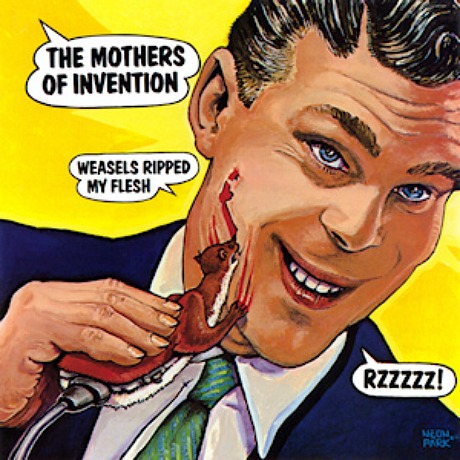
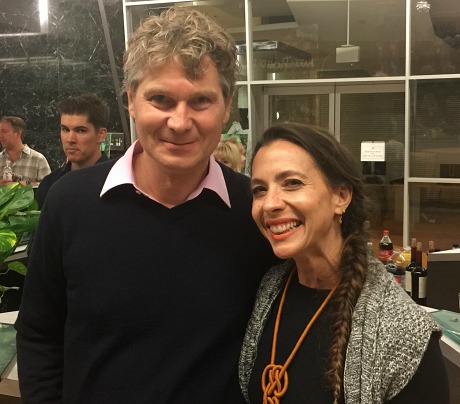
Eat That Question director Thorsten Schutte, Moon Zappa during Monday’s night’s after-party.
What I really loved about Zappa was his smart, impudent, iconoclastic attitude. He’s greatly respected as an avant-garde musician, of course, but to me he was mainly a deadpan satirist. I will forever be in debt to the man who dreamt up “Weasels Ripped My Flesh,” and who created/approved that magnificent album-jacket illustration [above].
Eat That Question is entirely composed of Zappa interview footage. It’s amusing, but over and over it tells you the same thing, which is that Zappa was cool to know and talk to and was always good for a pungent sound bite or two. Schutte gives you a very good idea, in short, of who Zappa was philosophically, attitudinally and personally.
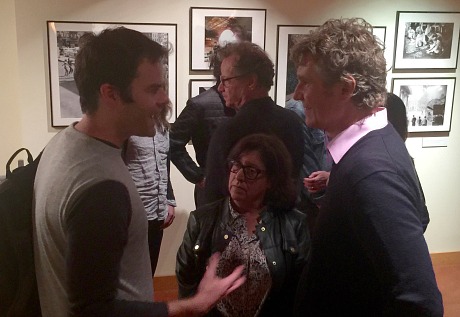
Bill Hader, Melody Korenbrot, Dweezil Zappa during after-party.
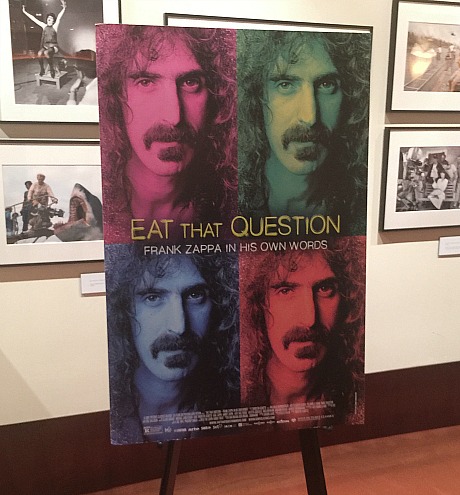
But he doesn’t pass along the story of Zappa’s life. Not with any detail, I mean. More facts have been omitted than used. No mention of “Weasels Ripped my Flesh.” No explanation about why Zappa dissolved the original Mothers of Invention. (Largely, I gather, because their income from record sales and concerts wasn’t that great and paying their salaries became too much of a burden). No mention of Zappa being busted in ’65 for cranking out some kind of pornography. No mention of Zappa’s collaboration with Zubin Mehta. No mention of his sponsoring of Wild Man Fischer and Alice Cooper. No mention of the 1971 fire in Montreux, Switzerland that burned all of the Mothers’ stage equipment. No mention of Zappa being badly hurt after being pushed into an orchestra pit later that year.
And most curiously, the film never offers a taste of those relatively few Zappa tunes that were catchy. The novice viewer isn’t allowed to sample “What’s The Ugliest Part of Your Body?“, “Valley Girl” or — my personal favorite — “Dirty Love.” But the film gives you repeated helpings of his weird experimental music. If I never hear this stuff again my soul won’t be under-nourished in the slightest. Why hide the fact that Zappa knew how to write hummable tunes now and then?
Variety‘s Sundance review stated that the film is presented “in now-archaic video formats.” Translation: it’s entirely composed in HE’s own aspect ratio of 1.33 (or 1.37).
I was invited to see Eat This Question at the Academy’s Linwood Dunn theatre on Vine. The four Zappa kids attended — Dweezil, Moon, Ahmet and (I think) Diva. Bill Hader and Sharon Stone were also there. Hader was sitting right in front of me during the screening, and was laughing (or more precisely tee-heeing) all through it.
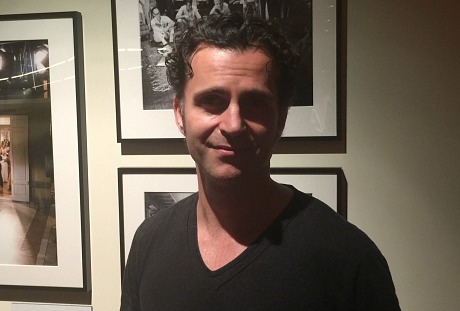
Dweezil Zappa.












